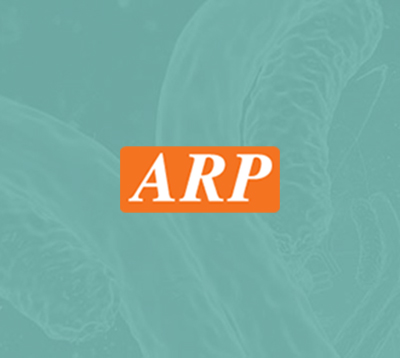Infectious Diseases
Infectious Disease
Infectious diseases are disorders caused by pathogenic micro-organisms such as bacteria, viruses, parasites or fungi. Although the symptoms of many infectious diseases are similar, determining the exact nature of the causative agent is essential to identify an appropriate therapy. For instance, while many bacterial infections can be treated using antibiotics, these drugs are ineffective against viruses; avoiding unnecessary antibiotic use is a primary concern in preventing the growing problem of antimicrobial resistance. By studying the cause, progression and spread of infectious disease, researchers aim to develop life-changing therapeutics.
We provide a wide range of products to support infectious disease research. These include high-quality anti-microbial antibodies raised against many different bacteria and viruses; recombinant bacterial proteins; and kits for quantitative detection of various infectious agents.
Infectious disease – bacterial
A bacterial infection arises when a harmful bacterial strain proliferates on or inside the body. This can lead to symptoms such as fever, lethargy or pain, with more serious bacterial infections culminating in sepsis, septic shock, multi-organ failure and death. Many bacterial species preferentially infect certain areas. For instance, skin infections are typically caused by gram-positive strains of Staphylococcus and Streptococcus, while gastrointestinal infections are often linked to species such as Escherichia coli and Salmonella.
Methods to identify bacterial strains include studying the shape of the micro-organism and determining whether the bacterium is gram-positive or gram-negative. Techniques such as ELISA or real-time PCR can be used to detect and quantify an infectious agent present in a sample, for example by monitoring a specific bacterial protein or evaluating bacterial gene expression respectively.
We offer a wide range of products to support research into bacterial infection, including high-quality anti-microbial antibodies to bacterial species that include Staphylococcus, Streptococcus, Escherichia coli, Salmonella, and many others.
Infectious disease – viral
Viral infections cause many similar symptoms to bacterial infections, with these typically resulting from the cell damage associated with viral proliferation. Because viruses are unable to replicate on their own, they instead hijack the cellular machinery of a host species in order to generate more virus particles. As new viral particles are released from the cells of the host, an immune response is generated that leads to the symptoms of infection.
Many different viruses are associated with infectious disease. Rhinoviruses, influenza viruses and coronaviruses cause respiratory illnesses, whereas sexually-transmitted viral infections are linked to viral agents such as human papillomavirus (HPV), hepatitis B and human immunodeficiency virus (HIV). Understanding the viral life cycle, as well as the structure and function of intact viral particles and their individual components is key to developing effective treatments for viral infections.
Our product portfolio has been carefully designed to accelerate researchers’ understanding of viral infection. In addition to a comprehensive range of anti-virus antibodies, we offer a broad selection of antibodies to drive the study of HIV and a wide range of anti-microbial antibodies.




